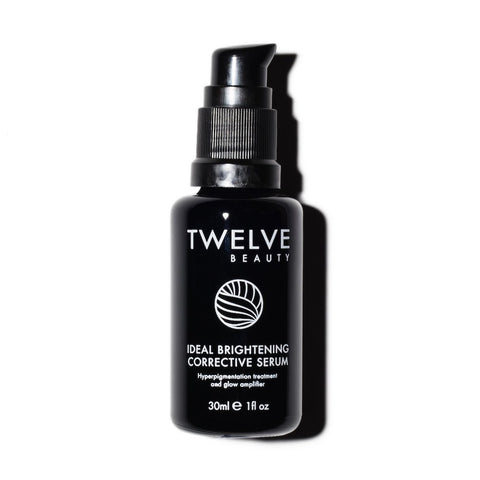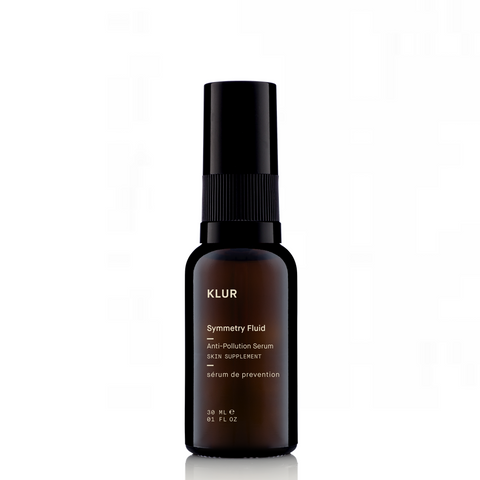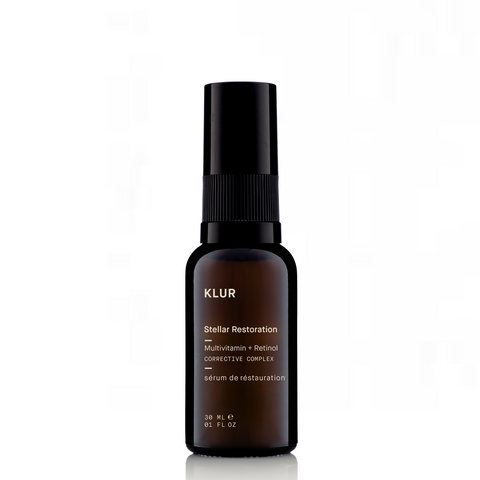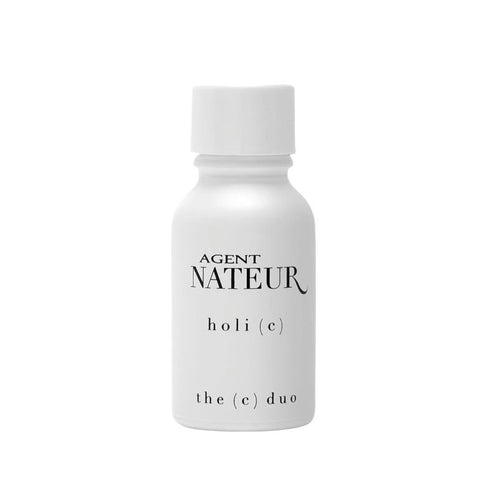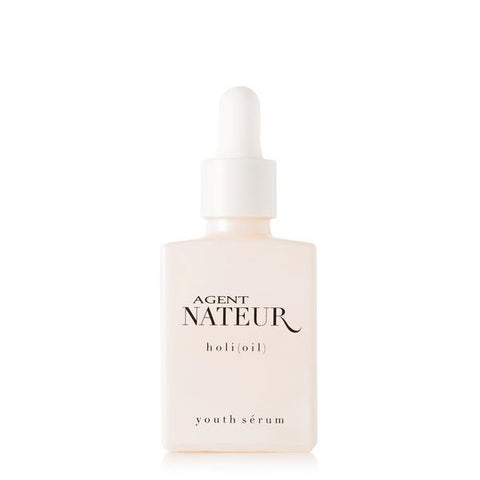Free shipping for HK orders HK$600+
Top 30 Skincare Questions Answered - Part 1
October 18, 2022
Over the years, we have been asked so many different skincare questions, many of which are the result of all the myths and misconceptions circulated online. We have therefore compiled them, and will go through the top 30 questions over the next 3 articles.
Today, let's focus on anti-aging, and collagen.
Oxidation
Oxidative stress and free-radical damage that we are exposed to everyday break down collagen and elastin fibers, hinder our skin’s natural repair process and trigger inflammation, resulting in fine lines and wrinkles, dullness, sagging, and loss of elasticity.
Product Recommendation
ANFISA
LILOU Radiant Hydra Balm <- Click to shop
Inflammation
As the adaptability of the immune system declines with age, it is less able to respond properly to invasion of foreign matters like bacteria and irritants, or clear bacterial, irritants and viral invasions. When the skin is in chronic inflammatory mode, not only will it lead to issues like eczema and rosacea, signs of aging, such as wrinkles, pigmentation, sensitivity, sagging and dryness, will also accelerate.
Product Recommendation
MARIE REYNOLDS LONDON
Restore <- Click to shop
Glycation
AGEs, produced by the glycation process, are detrimental to skin health, as they cause the skin to lose elasticity and firmness, sag, turn dull and yellowish, and form wrinkles and fine lines, as well as trigger inflamed breakouts.
Product Recommendation
OUMERE
The Eye Serum <- Click to shop
Photoaging
UV rays penetrate deep into the skin and cause cumulative damages to our DNA at the cellular level. These damages may be initially invisible to the eye, but the fact that they are affecting everything from the surface to the deepest layers of the skin is indisputable, and it can take years for sun damage to become visible because of the depth at which the UV rays damage skin cells, i.e. the dark spots you see now are the result from your teenage years, and the wrinkles? That’s the result of 10-20 years of cellular damages.
Product Recommendation
TWELVE BEAUTY
Ideal Brightening Corrective Serum <- Click to shop
Deterioration of Skin Renewal
It takes around 14-21 days on average for our cells to renew themselves in our 20s; this process gradually lengthens to 28-45 days in our 30s, 45-60 days in our 40s, and 90 days in our 50s-60s. With a buildup of dead skin cells on the surface of the skin, it will prevent clogged sebum, dirt and bacteria from coming out. This will cause issues like enlarged pores, acne, inflammation, dullness, rough texture, dryness, hyperpigmentation taking longer to fade, and skincare products not penetrating effectively.
Product Recommendation
Agent Nateur
holi(bright) Resurface Glass Face Mask <- Click to shop
Fragile, Damaged Skin Barrier
While the body is made up of up to 70% water, the outermost layer of the skin, aka stratum corneum, is made up of ceramides, cholesterol and saturated fatty acids. Together they create a water-impermeable, protective layer to prevent excessive water loss, and act as a barrier against the entry of bacteria, irritants and pollutants.
The problem is, a lot of things can damage the lipid barrier —— changes in temperature and humidity, constant rubbing of face masks against the face, face scrubs, foaming cleansers, face picking, inappropriate use of skincare products, pollutants and irritants, UV exposure, and so on.
To make things worse, the levels of the lipids needed for a healthy lipid barrier decline with age. As a result, upper layers of the skin become thinner, the skin is more prone to dryness, dullness and inflammatory conditions such as eczema and psoriasis, whilst fine lines and wrinkles become more prominent.
Thus when the barrier is not protected and maintained, skin will age quickly.
Product Recommendation
MARIE REYNOLDS LONDON
Butter Balm <- Click to shop
Dehydration does increase oxidative stress for the skin, and it does lead to dullness, tightness, dry lines, etc., but overall, dehydration is more a problem derived from the above-mentioned main causes of skin aging, rather than the main cause of skin aging itself. In fact, if you keep adding too much water to the skin, the stratum corneum will become brittle due water overflow, and the lamellar structure that controls barrier function will also become unstable, which will in turn damage the barrier function.
Hence, while it is important to keep the skin hydrated, as long as you focus on anti-oxidation, anti-glycation, anti-inflammation, anti-photoaging, stimulating cell renewal, and protecting and maintaining your skin barrier, dehydration of the skin will naturally improve as well.
Pictures you see of cut-opened apples turning brown is just part of oxidation. In fact, not only is oxidation the main cause of skin aging, oxidatively damaged DNA has been recognized in association with chronic and degenerative illness such as cancer, autoimmune disorders, aging, cataract, rheumatoid arthritis, cardiovascular, as well as neurodegenerative diseases including Parkinson's, Alzheimer's, amyotrophic lateral sclerosis (ALS), multiple sclerosis, depression, and memory loss, etc.
Our cells are made of molecules that contain electrons that must stay in pairs to stay stable and healthy. Free radical is an unstable atom or molecule that is missing an electron. To make itself whole, it attacks the nearest stable molecule and steals an electron. This action not only leads to damages to all components of a cell, including DNA, proteins, lipids and its membrane, it also sets off a chain reaction of cellular disruption whereby the victimised molecule, now missing an electron, is transformed into a free radical.

Free radicals and other reactive oxygen species (ROS) have a necessary function for proper physiological function in the body——at a regulated amount, they can prevent bacterial, fungal and other pathogenic invasion from infecting the body. However, when there is an excess of free radicals in the body, they can create oxidative stress that manifest as diseases at certain ages determined by genetic and environmental factors, such as cancer, heart disease, Parkinson’s disease and Alzheimer’s disease. Our skin being the largest organ of our bodies, is obviously non-exempted.
Free radicals damage the skin by triggering chronic inflammations, as well as breaking down the collagen and elastin fibers in the skin. Although invisible to the eyes, this gradually slows down our skin’s natural rejuvenation process, and appears on the skin in the form of dryness, dullness, loss of elasticity, wrinkles, pigmentation, redness, itchiness, and even chronic conditions like eczema, rosacea, and psoriasis.
Product Recommendation
KLUR
Symmetry Fluid <- Click to shop
From birth, humans start accumulating cell damage and melanin from various factors such as UV rays, free radicals, pollution, stress, sleep quality, diet etc. When we are young, our skin and body are ready to fight and can recover quickly, issues are thus less apparent; however our cell functions begin to decline around the age of 20-25, and the accumulated cell damage will start to appear as visible wrinkles, sagging, pigmentation, enlarged pores, etc., and unfortunately, will only get worse. So don't obsess over how old you should start your anti-aging routine. Instead, focus on anti-oxidation, anti-glycation, anti-inflammation, anti-photoaging, stimulating cell renewal, and protecting and maintaining your skin barrier as early as possible, then add different skincare ingredients according to your skin’s particular needs at different times.
At the end of the day, preventing cell aging so our skin’s age stays constant, is definitely more effective and achievable than improving an already existing problem.
There are in fact many ingredients that are very effective in targeting different causes of skin aging, but if only five can be picked, then the below are the best choices:
Top 1: Retinol
Being one of the few potent anti-aging ingredients that is widely recognized, retinol smoothes wrinkles, firms skin, tighten pores, and fades pigmentation by fundamentally augmenting the biology of the skin to stimulate Type I, Type III, and Type IV collagen and elastin production, activate epidermal growth factor receptors, and subsequently thickening the epidermis and dermis. It is also an excellent ingredient for acne!
While retinol sounds intimidating, technological advances mean retinol can now come in a liposomal, encapsulated, time-released form that is gentler on the skin. Whether it causes irritations also depends on its concentration, delivery system, and the overall product formula.
For details, visit 5 Retinol Myths Debunked.
Product Recommendation
KLUR
Stellar Restoration Corrective Complex <- Click to shop
Product Recommendation
KLUR
Sculpture + A Overnight Enrichment Cream <- Click to shop
Top 2: Niacinamide
Niacinamide is a water-soluble active form of vitamin B3. Since it does not require conversion before it can be used, it readily penetrates the skin and gets to work immediately. Also, because it does not cause sun sensitivity, it can be used day and night.
With continued use, Niacinamide can brighten the skin and reduce hyperpigmentation, as well as increase collagen production in the dermis, normalize collagen, and inhibit glycation, ultimately reducing and preventing fine lines and wrinkles! It also has anti-inflammatory and antioxidant properties, as well as the ability in restoring the skin’s barrier function and regulating sebum, making it an excellent choice for all skin types, including inflammatory skin conditions, such as acne, rosacea and eczema.
For details, visit Everything About Niacinamide.
Product Recommendation
EATH Library
All Day Radiance Light Concentration Cream <- Click to shop

Product Recommendation
TWELVE BEAUTY
Ultra Revitalising Elixir <- Click to shop
Top 3: Vitamin C
Vitamin C is one of the most important elements to skin health. Without it, our skin simply cannot function properly. That’s not it however. Vitamin C it is also an incredible anti-aging ingredients as not only is it a potent antioxidant that can neutralize free radicals, it also boosts collagen production, aids in the skin’s natural regeneration process and repairs damaged skin cells, and Inhibits melanin production which can lighten and prevent dark spots and hyperpigmentation.
Certain types vitamin C are not friendly for many skin types though, namely ascorbic acid, so make sure you choose the right one. We especially recommend Sodium Ascorbyl Phosphate and Tetrahexyldecyl Ascorbate.
For details, visit Ingredient Spotlight: Vitamin C and Myths About Vitamin C.
Product Recommendation
KLUR
Brilliant Light Multi-Correction Repair Serum <- Click to shop
Product Recommendation
KLUR
Unseasonal Kind Lipid Replenishment Oil <- Click to shop
Top 4: Peptides
Researches over the years have shown that different peptides work in very specific ways to target an exact skin care need, and they also teach skin how to help revitalize its building blocks and revive aging skin. Using products with peptides topically is like sending little messengers to the skin, which trigger the skin to perform specific functions like building collagen and elastin, fight free radicals, and reduce inflammations, depending on the type of peptide used.
For instance, Palmitoyl tripeptide-5 can enter epidermis and can penetrate deep into the dermis, where it works on the specific skin receptors and stimulates the production of collagen in the skin. It thus firms the skin, and reduces wrinkles and fine-lines. This peptide also stimulates hyaluronic acid and elastin synthesis. Whilst, many studies and clinical trials have found that applying Palmitoyl Tripeptide-1 twice daily for at least four weeks can result in statistically significant reductions in wrinkle length, depth and skin roughness. It also helps decrease the appearance of pores, and help the skin retain moisture.
On the other hand, acting as a cellular messenger, studies have shown that Palmitoyl Tetrapeptide-7 can significantly stimulates the regeneration of collagen fibers in the dermis and the production of hyaluronic acid in the skin, which helps reduce wrinkles, as well as tighten skin by attracting moisture to the epidermis. Whereas Acetyl Hexapeptide-37 has been shown to boost the synthesis of Type I collagen by 61%. This means tighter, firmer skin, with fewer fine lines and wrinkles.
For details, visit Peptides Are Little Miracle Workers For The Skin.
Product Recommendation
EATH LIBRARY
The Pure Wonder Active Serum <- Click to shop
Product Recommendation
MARIE REYNOLDS LONDON
Skin Quencher <- Click to shop
Top 5: Acids
Acids are known to exfoliate and unclog pores, but those are not what acids only do.
As we get older, the speed and efficiency of our cell renewal process decrease significantly——from 14-21 days in our 20s, to 28-45 days in our 30s, 45-60 days in our 40s, and 90 days in our 50s-60s on average!
When the cell renewal process slows, the following signs of aging may arise:
- Face will start looking older, because as the accumulation of dead skin cells at the top signals the epidermis to stop creating new cells as quickly, the mother cells deep in the epidermis will stop dividing and creating new cells, which ultimately slows down the entire cell regeneration and renewal process.
- Fine lines will become more prominent, as the layer of thick, uneven keratin-filled dead cells can make any folds on the face (or where expression lines usually are) appear much worse than they actually are.
- Hyperpigmentation will take longer to fade, because old melanin cannot move to the top layer of the skin and get shedded off.
- Skincare products cannot properly penetrate the skin, thus rendering them ineffective.
Therefore, by simply incorporating acids into your daily routine, the above issues will improve. What’s more, with continued use, they can stimulate collagen and hyaluronic acid deposition and synthesis, meaning thicker dermis, increased elasticity and less wrinkles!
For details, visit Skin Benefits of Regular Exfoliation.
Product Recommendation
OUMERE
No. 9 Exfoliant <- Click to shop
Product Recommendation
AGENT NATEUR
acid(wash) Lactic Acid Brightening Cleanser <- Click to shop
Collagen is a complex and massive molecule, thus applied topically, it will not penetrate the epidermis of the skin, let alone get down into the dermis——they just sit on top of the epidermis. This essentially means, not only will these topical collagen products not be able to replace the lost collagen to improve fine lines and wrinkles, there is simply no current research showing that topical collagen can stimulate collagen synthesis or growth. Period.
With that being said, collagen has moisturizing benefits when applied topically, so when a toner, serum or moisturizer containing collagen is used, your skin may feel softer and smoother, and wrinkles may look less prominent, but this does not mean the underlying issue collagen loss is solved.
As for how to add collagen to the skin, there are essentially three routes: 1) use skincare products consisting of ingredients that can prevent existing collagen from breaking down; 2) boost collagen synthesis by incorporating certain ingredients in your skincare routine; and 3) taken collagen supplement internally.
UV rays and oxidative stress can accelerate the breakdown of collagen and elastin, leading to wrinkles and sagging. Ingredients like Mulberry, Cordyceps, Polygonum Aviculare, Broccoli Sprout, Bilberry, and Cilantro, can prevent such daily UV-induced damage, fight free radicals, promote cell regeneration, prevent degradation of collagen and elastin, and reverse photoaging at the cellular level.
Product Recommendation
OUMERE
UV-R™ <- Click to shop
As for collagen-boosting ingredients, the above mentioned top 5 anti-aging ingredients——retinol, niacinamide, vitamin C, peptides, and acids, have been clinically proven to stimulate collagen synthesis, so make sure they are included in your skincare routine, especially when you're 25+.
Another amazing ingredient to add would be Calcium Ketogluconate.
Clinically studies have proven this French-patented, expensive ingredient can increase elastin synthesis by 40-45%, increases self hyaluronic acid synthesis by 36-92%, lift skin by 27%, and improve skin elasticity by 16% with 28 days of continued use day and night. Which means, in short, less wrinkles and plumper skin!
Product Recommendation
AGENT NATEUR
holi(c) The C Duo <- Click to shop
AGENT NATEUR
holi(oil) Ageless Face Serum <- Click to shop
When the human body digests protein, it will first breakdown the protein into amino acids, dipeptides and tripeptides, so they can be absorbed by the intestinal tract. Therefore, if collagen, with this huge helical structure, has not been pre-processed into smaller molecules, the human body's digestive system simply cannot break it down into molecular units small enough to be absorbed. This is why eating collagen-rich food like fish maw is actually ineffective at all for the skin.
However, with the advancement of science and technology, general collagen powder nowadays has a small molecular size. Not only has it been proven to be absorbable by the human body, numerous clinical trials have also demonstrated its ability in effectively stimulating the proliferation of skin cells, promoting collagen and hyaluronic acid synthesis, improving hair loss, hair and nail quality and gut health, and even preventing osteoporosis! For more information and clinical research data, visit How Collagen Supplement Improves Skin, Hair & Nails.
Of course, there are different collagen powders on the market, some are made from beef or pigs, while some are derived from fish. Even if they come from the same animal though, their sources, collagen content, serving size, and composition are all different, thus not all of them can help achieve the desired effect. (Note that there is no such thing as plant-based collagen, as collagen only exists in animal tissue, so those so-called “plant-based collagen” simply won’t work.)
Also, collagen powder, just like other supplements, is not a magic potion. Don't expect a massive difference in two or three weeks. Look, collagen and hyaluronic acid need time to be synthesized in the body! Therefore, the key is patience and consistency.
Product Recommendation
AGENT NATEUR
holi(mane) Hair, Skin & Nails Daily Supplement <- Click to shop
This is simply a myth.
Normal heat does not damage collagen supplements. In fact, they keep their integrity up to 300°C by folding and unfolding in response to the changing heat.
Above 300°C, collagen undergoes a type of irreversible degradation, but that’s hotter than broil settings on most ovens, so unless you’re taking a blowtorch to your collagen powder, you can even bake a cake with it, let alone mixing it with hot beverages.
As long as it is a time easy for you take during the day, any time is actually fine!
This is because the bulk of the breaking down of proteins actually happens in the small intestine, so full stomach, half-full stomach, or empty stomach—there is actually little difference.
Most people like taking it with their morning coffee, tea or juice, but if you have sleeping problems though, try taking collagen supplements at night. This is because studies are showing that glycine, which collagen supplements contain, is an inhibitory neurotransmitter, much like GABA. It increases serotonin levels without increasing dopamine levels, thus could help maintain healthy circadian rhythms, leading to better sleep.
There are two ingredients that can provide synergistic benefits when taken with collagen supplements.
First, pearl powder. A rich source of nacre, minerals, nutrients, and dissolved ions in stable pH measurements, such as magnesium, calcium, potassium, chromium, selenium, and zinc etc., pearl powder stimulates collagen and elastin production, promotes cellular repair and hydration, and protects skin, thus improving and slowing skin, hair and nails aging. Its high magnesium content elevates GABA levels, which lessens oxidative stress, thereby slowing premature aging, and promotes sleep. It also has skin brightening effects. Combined with collagen supplements, collagen, elastin and hyaluronic acid production can be stimulated in the maximum way.
For more details, visit Internal and Topical Pearl Powder Benefits For Skin and Health.
Second, intake and topical usage of vitamin C. Not only is it important for immune support, skin health, and the growth and repair of body tissues, vitamin C is also needed for the synthesis and maintenance of collagen, and acts as a kind of “glue” that binds collagen fibers together. In other words, if there is too little vitamin C in the body, it cannot produce as much collagen.
Now, intake-wise, getting vitamin C from food sources is the best, but in case you’re not getting enough, you may want to take vitamin C supplements. For complete absorption, liposome-encapsulated form is the best, as it does not require digestion, and is absorbed on a cellular level almost immediately. Also, try break the daily dosage into 2 times a day. This is because vitamin C is used up and destroyed in the biosynthesis of collagen while collagen is continually being formed, and vitamin C does get excreted from the body via urine, thus it may be beneficial to take vitamin C morning and night.
As for topical usage, try sodium ascorbyl phosphate. Not only does this stable form of vitamin C stimulate collagen synthesis, brightens skin, lighten pigmentation, fight free radicals, regenerate and repair skin cells, and enhance sunscreen’s photo-protective properties, it has also been clinically proven to be very effective against acne!
For more details, visit Sodium Ascorbyl Phosphate - The Form of Vitamin C You Want in Your Skincare Routine.
Part 2 will come on November 2, so stay tuned!
Also in The Journal

The Hidden Culprits of Skin Aging: Autophagy Decline and Zombie Cells
January 07, 2026
Don't just mask aging—reverse it. Learn how clearing Senescent Cells and restarting Autophagy creates lasting youthful skin.

The Anti-Aging Gold Standard: How Retinol Reshapes The Skin
November 12, 2025
Learn why retinol is the gold standard for anti-aging, how it works, what similar ingredients exist, and some common myths and misconceptions.

The Gut-Skin Connection: The Path to Healthy Skin
October 26, 2025
Acne, eczema, rosacea, and sensitivity can all be linked to the gut health, and even gluten? Learn all about the connection between the gut and the skin.
+Recent Articles
-
The Hidden Culprits of Skin Aging: Autophagy Decline and Zombie Cells
January 07, 2026
-
The Anti-Aging Gold Standard: How Retinol Reshapes The Skin
November 12, 2025
-
The Gut-Skin Connection: The Path to Healthy Skin
October 26, 2025
-
The Secret to Reversing Skin Aging! How Growth Factors & Peptides Help Turn Back the Clock
October 13, 2025
-
The Best Ways and Times to Take Different Supplements
August 19, 2025
-
Luxury vs. Budget-Friendly Skincare Products——What Are Their Differences?
August 06, 2025
-
How to Prevent and Improve Post-Inflammatory Hyperpigmentation (PIH)
July 10, 2025
-
How to Prevent and Improve Post-Inflammatory Erythema (PIE)
July 08, 2025
-
The Ultimate Cleansing Guide to Improve Skin Conditions
June 03, 2025
-
Do You Have Sugar Face? How Does Sugar Affect Our Skin and Appearance?
May 20, 2025
Subscribe to get skincare knowledge delivered to your inbox!





